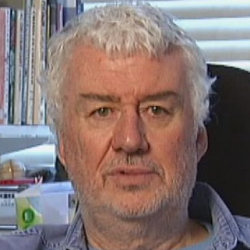Trump’s attacks on Harvard: Cardinal Wolsey and the prologue to an Australian encounter? Part 1 of 2
June 11, 2025
The White House is now more accurately described as an Imperial War Room: from it, President Trump directs indiscriminate attacks on whatever is enraging him.
Some offensives are transient, but among the more consistent — a long list admittedly — are assaults on the universities. Most recently this has included an across-the-board campaign against Harvard University. This should not be without interest in Australia: Trumpism is a portmanteau and elements of it — and I emphasise elements — are easily transportable and deployable.
Throughout, the deathbed confession of Cardinal Thomas Wolsey, Lord Chancellor of England under Henry VIII, comes to mind – acutely so if, for God and King, is substituted Education, and US power, respectively:
If I had served God as diligently as I have done the king, He would not have given me over in my grey hairs. But this is just reward that I must receive for my diligent pains and studies that I have had to do him service, and not regarding my services to God, but only to satisfy his pleasure.
Essentially the attack on Harvard is a central front in a civil war involving scholasticide, strikes against academic freedom, critical thought, science, civic learning, and the erasure, ultimately, of the Enlightenment project.
Defending Harvard, however, is not a simple or risk-free exercise because it is far from innocent; it involves encountering irreconcilable tensions that take shifts and turns that are, more than occasionally, embarrassing to those proclaiming academic virtue as well as those who seek to topple the iconic institution.
Consider, first, Harvard itself. It is imposing and formidable: it was founded in 1636, which makes it not only the oldest university in the US, but also140 years older than the Republic itself. It is, as Ed. Pilkington notes, also the world’s richest university, with a US$53 billion endowment that is bigger than the GDP of almost 100 countries (or more than 50% larger than the Australian Defence budget). Harvard, ostensibly a university, recently issued US$750 million in bonds.
It has an operating budget of US$6.4 billion; 25,000 students are taught by 2400 faculty members, spread out over 13 schools. Of the former, 6800 (or 27%) are international students.
Basic tuition at Harvard for American students is US$59,320 for the school year but accommodation and other costs will take the total to US$87,000; international students pay a premium on this.
Harvard received about US$687 million in federal research money during its 2024 fiscal year, making the federal government its largest revenue source for a wide-ranging portfolio of projects.
Consider, now, Trump’s casus belli. For American doctrinaire conservatives, these were promulgated (in a somewhat different tone) decades ago in, for example, the writings of William Buckley, but in their contemporary, unhinged formulation, critics, as catalogued by the eminent Harvard psychologist, Professor Steven Pinker, find identify Harvard as the fons et origo mali – a root cause of national evil:
A “ national disgrace,” a “ woke madrassa,” a “ Maoist indoctrination camp,” a “ ship of fools,” a “ bastion of rampant anti-Jewish hatred and harassment,” a “ cesspool of extremist riots” and an “ Islamist outpost” in which the “ dominant view on campus” is “ destroy the Jews, and you’ve destroyed the root of Western civilisation.”
This is entirely consistent with the president’s scorn of Harvard. It is not only a “joke,” but a teacher of “hate and stupidity,” which supports terrorism and something he describes as “sickness”. For him, Harvard and other Ivy League universities are defined as being antisemitic, biased towards liberalism, and (therefore puzzlingly) staffed by “Marxist maniacs”.
[As an aside, Trump et al are silent on how this academic dystopia managed to produce eight US presidents and (between 1960 and 1990) a quarter of all US cabinet officials.]
In this attitude, he is reinforced by his Vice-President, J.D. Vance, an Ivy League graduate who, in 2021, rejected whatever it was that he learned at Yale. In his historical understanding, the American Right had:
lost every major powerful institution in the country, except for maybe churches and religious institutions which, of course, are weaker now than they’ve ever been. We’ve lost big business. We’ve lost finance. We’ve lost the culture. We’ve lost the academy. And if we’re going to actually really effect real change in the country, it will require us completely replacing the existing ruling class with another ruling class… I don’t think there’s sort of a compromise that we’re going to come with the people who currently actually control the country. Unless we overthrow them in some way, we’re going to keep losing… We really need to be really ruthless when it comes to the exercise of power.
His plan was straightforward: “We have to honestly and aggressively attack the universities in this country”, because “We live in a world that has been made effectively by university knowledge”. Thus, to rebuild the nation along the lines of white Christian nationalism, Vance proposed that the universities had to be destroyed. In simple terms, “the professors are the enemy”.
No surprise, then, that following his inauguration, the federal government acted accordingly against the universities and, in Harvard’s case, instituted at least eight investigations into it involving at least six federal agencies.
Do these acts constitute an excursion into grand irrationality — even tyranny and elements of fascism — or perhaps something else?
The suggested alternatives are not to be confused with an attempt to justify the attacks in the first place; rather, they are openings to the larger problematics of university education that Harvard presents so fulsomely; of, essentially, the consequences that befall universities that are swept, willingly, into the vortices of power politics.
Here, there is a need to be attuned to both the cogent and coherent defence of Harvard proffered by Professor Pinker in _The New York Times_, and the similar quality of rebuttals to it, instanced by that of conservative commentator and former Harvard faculty member, Stanley Kurtz, in the _The National Review_.
What stands out is not just that the tone is civil, and the arguments are logical and concise, but that Harvard has a case to answer. And it’s answering is long overdue. Unfortunately, for all of their respective historical erudition, neither protagonist develops a comprehensive schedule of where it all went awry.
And those points of departure are important because they are easily concealed by the sources of pride that Harvard asserts and Pinker brings to the fore: “For all its foibles, Harvard . . . has made the world a better place, significantly so. Fifty-two faculty members have won Nobel Prizes, and more than 5,800 patents are held by Harvard.” And the list he produces is beyond impressive.
He concludes: “Practical applications are not the only things that make Harvard precious. It is a phantasmagoria of ideas, a Disneyland of the mind.”
But the reference to “foibles” is a source of concern, not least because they are hardly minor weaknesses or eccentricities in the institutional character. Indeed, the Pinker-Kurtz exchange produces an awareness, and a chronic awareness at that, of some of Harvard’s disfiguring failures.
As Pinker expresses it, “some of the enmity against Harvard has been earned.” He details representative examples of notorious denials of academic freedom which have troubled him and his colleagues for years, failures to properly educate students, and Harvard’s overall lack of “viewpoint diversity” resulting in a paucity of conservative appointments.
Of acute contemporary significance, moreover, have been two recent, densely packed reports, based on conversations with large numbers of staff, faculty, and students, which indict Harvard for tolerating both antisemitism (in the form of anti-Zionist zealotry) and anti-Muslim bias.
Harvard has promised the essential reforms. It should also be noted that senior Jewish members of faculty deny that, regardless of the reports, there are no grounds that justify Trump’s sweeping claims of anti-Semitism at Harvard.
Even then, there remain questions as to whether other, fundamental issues are being addressed. That legitimate grievances, and pressing moral issues become chronic are two of these; the costs of tuition are another.
What the various records and reports suggest, and articles by Harvard alumnus and Pulitzer Prize-winning journalist, Chris Hedges confirms, is that Harvard and the other elite universities were created to train and perpetuate the plutocracy; historically, their well-defined role has been to serve the political and economic power structure of the US.
Distilling the various claims and debates reveal that, at the core of them, the struggle is not over whether, and how, Harvard should be restored to the status quo ante, but whether it is aware that its solemn obligations to higher education could ever, in the long run, be compatible with the role of courtier to power.
Granted, unconditional dedication to the former would not have deterred Trump’s attacks, but succumbing to the delights of the latter ensured that state power was encouraged to believe it had a lien in Harvard’s virtue. And it is not mistaken.
The views expressed in this article may or may not reflect those of Pearls and Irritations.


